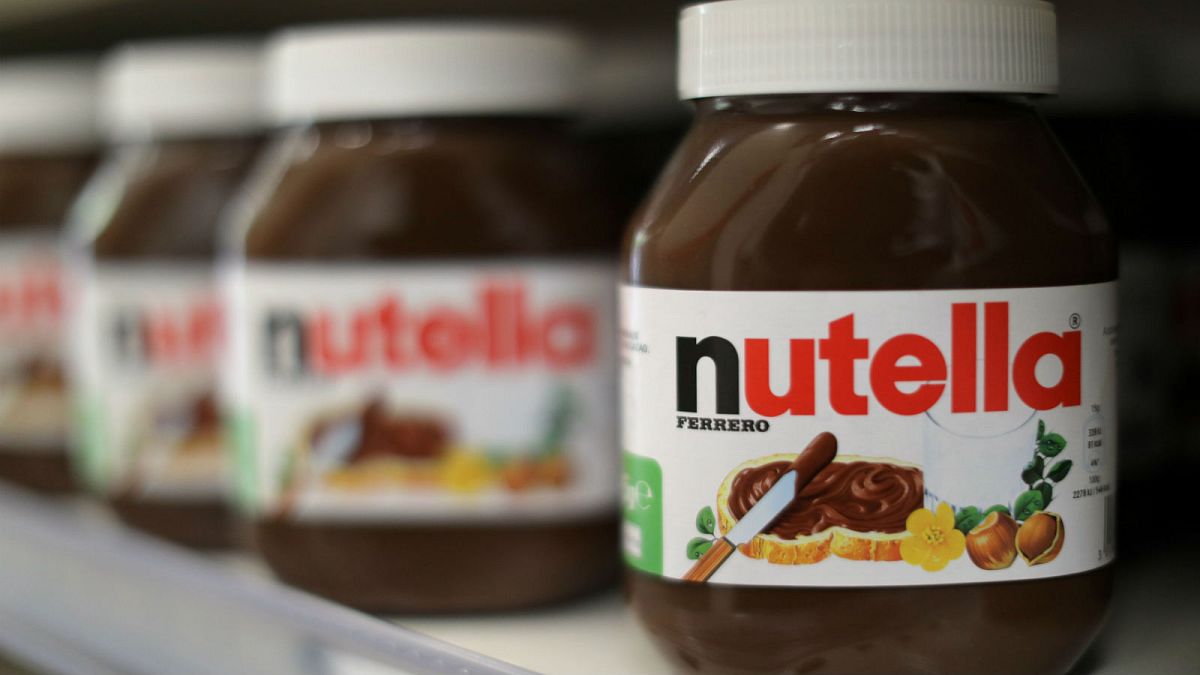Given the 'gilets jaunes' protests, this could prove to be controversial.
Supermarket shoppers in France will have to dig deeper from Friday when the price of hundreds of high-profile branded products goes up.
Why are prices going up?
France’s agriculture minister, Didier Guillaume, says it is part of a bid to rebalance how supermarkets make their money.
The likes of Carrefour and Auchan will be allowed to charge more for the big brands like Nutella, Nescafe and Coca-Cola.
The theory is this will allow the supermarkets to put less of a squeeze on the price they pay producers for items like fruit, vegetables and milk.
"What I ask of supermarkets is to find a way to spread their margins differently, to distribute things better, the goal is that agricultural products are sold at their fair value," Guillaume said on Wednesday.
Farmers, an important constituency in French politics, have long complained of being hit by a price war between retailers, which has benefited consumers but hurt producers down the chain.
How much will they go up?
French daily newspaper Le Parisien claimed there would be a 6.3% price rise on a basket of supermarket goods, which included items like a bottle of Coca-Cola, a pot of Nutella chocolate spread and Joker orange juice.
Guillaume partially confirmed this during an appearance on French radio station France Info on Tuesday.
He said 4% of supermarket products would be affected and that it would mean 50 centimes extra a month for shoppers.
France’s government delayed the price rises in December as it reeled from violent “gilets jaunes” (“yellow vests”) protests that cited the prohibitive cost of living as one of the reasons for hitting the streets.
How is the government forcing supermarkets to put prices up?
Selling at a loss is already banned in France.
To establish whether a supermarket is doing this, France uses the Resale Below Cost (SRP) threshold.
This takes into account how much the supermarket paid for the product and the cost of transporting it to its warehouse.
A new food law passed last year means some products now have to be sold at 10% above this threshold.
It’s aimed at stopping supermarkets cutting the price of things like Coca-Cola — to attract customers to their stores — and then recovering the money they lose by squeezing how much they pay farmers for things like fruit, vegetables and milk.
What do the supermarkets say?
“What all the economic players, except Leclerc, have agreed is that we must change the system, so that we come back to normal prices, and that it allows us to improve the fate of farmers and from this point of view, I find that there is nothing shocking that the price of Ricard can increase a little if it increases the price paid to dairy farmers for a litre of milk," said Jacques Creyssel, from the Federation of Commerce and Distribution (FCD), which represents all the major French supermarkets, aside from Leclerc.
And the French farmers?
“The SRP is part of a system whose objective is to better distribute value, not to increase prices; better pay farmers, not bludgeoning consumers,” said French farming unions in a statement.
“To say that the prices of agricultural products will increase mechanically with the increase of the SRP is to try to make us believe that all its food products are sold at almost cost price.
“We know that this is false and that today it is the products of our regions, pressurised by central purchasing, that pay the distribution of Coca-Cola or Nutella.
“And it is, of course, the farmers at the end of the chain who pay the bill!
“The increase in the SRP, along with the other levers of the legislative system must help put an end to practices that condemn French agriculture.
“All that is needed is for distributors to pay a little more for suppliers on the vast majority of products without raising prices to the consumer, in return for the restoration of their margin on some key products that the increase in the SRP allows them to achieve.”
Are the changes controversial and will they have the desired effect?
It is difficult to predict how the French will react, but, given the "gilets jaunes" protests and France's apparent appreciation of Nutella, there could be some kickback.
Farmers might join in if the desired goals of this legislation — that will be put in place for a two-year trial period — fail to bear fruit.
Some are sceptical, like French consumer association UFC-Que Choisir, who say there is nothing to force supermarkets to rebalance where they make their money. While they will have to put up the price of some branded products, there is no legal mechanism to make them reduce their profit margins on agricultural goods.
